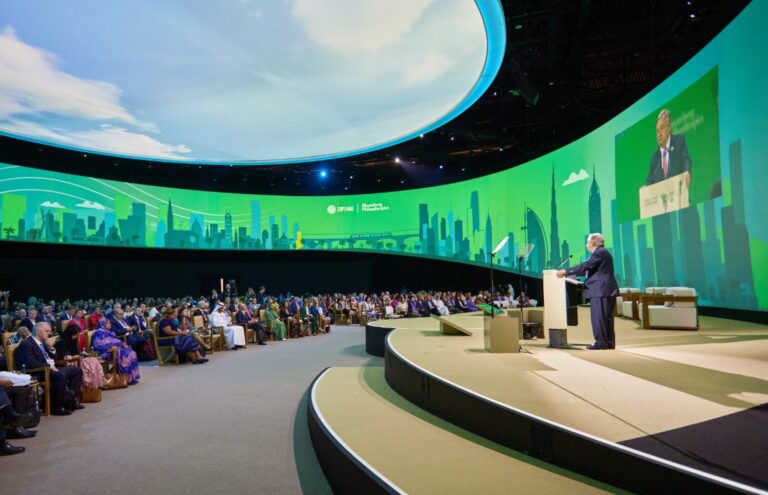From November 30 until December 12, 2023, the 28th Conference of the Parties on Climate Change, or the long-awaited and much-discussed COP28, takes place in Dubai. The Conference will be a succession of meetings and negotiations.
A new, long and crucial appointment to draft a common and effective plan of action to address the climate crisis, which is becoming increasingly dangerous and difficult to stop.
Table of Contents
Different dates to stop fossil fuel extraction: the Civil Society Equity Review report
Every year, in the days of the international climate change summit, many interesting reports are published regarding the current climate scenario, strategies needed, forecasts for future years, and so on.
In fact, it is quite normal that while the “powerful” discuss the policies to be followed in the coming years, the scientific community presents the most up-to-date data to support this delicate decision-making process.
It is therefore not surprising to find among the publications these days the report of the Civil Society Equity Review, entitled ‘Equitable Phaseout of Fossil Fuel Extraction: Towards a reference framework for a fair and rapid global phaseout’.
Here precisely is proposed the possibility – with related scenarios – of setting different dates for stopping fossil fuel extraction, in the knowledge that in some countries this process may be particularly difficult to deal with soon. The goal it must be said is always to contain the average global temperature increase within 1.5 degrees Celsius.
Fossil fuel phase out by 2031 for rich countries
Many Western economies have reduced dependence on fossil fuel extraction. Civil Society Equity Review researchers cite the United States, United Kingdom, Australia, Germany and Canada as examples.
They estimate that to stay within 1.5 degrees of warming, phasing out fossil fuel extraction for these countries should absolutely begin by 2031, not after.
By ensuring an equitable approach to the elimination of coal, oil and gas extraction, the poorest countries could instead postpone this time until 2050.
In this way they could continue to take advantage of the revenues and employment provided by fuels. It must be said that in each case these are closer deadlines than those assumed by the governments themselves.
The researchers also pointed out that many countries, in order to achieve these goals, will still need international support, without which fuel phase-out will be impossible.
Read also: COP28 in Dubai, imminent verdict: toward a green transition or will the fossil fuel lobby win?












